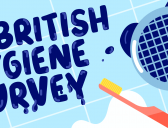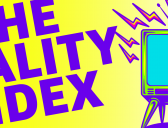The UK’s biggest gambling firms have agreed to major advertising changes, including a ‘whistle-to-whistle’ ban on TV betting adverts during pre-watershed live sport, in response to public concerns about gambling advertising. While many have welcomed the move, there are others who believe the measures are only a start to tackling problem gambling in the UK.
What measures have been introduced?
The Industry Group for Responsible Gambling (IGRG) has announced changes to its Gambling Industry Code for Socially Responsible Advertising —otherwise known as ‘the Code’— as part of the Code’s annual review process. The new measures were proposed by the Remote Gambling Association (RGA), one of the five trade associations that make up the IGRG. The RGA represents some 640 gambling operators, including online betting firms such as Bet365, William Hill and Ladbrokes.
The new measures are headlined by a ‘whistle to whistle’ ban on all TV betting adverts during pre-watershed live sport, with the exception of horseracing and greyhound racing. The ban will commence five minutes prior to the live broadcast of a sporting event and end five minutes after it has finished. In addition, there will be a complete ban on any pre-watershed betting advertising around non-live broadcasting of sports, such as reruns and highlights programmes.
These provisions will also extend to the linear streaming of televised live sports broadcasts on web-enabled devices.
Why has the ban been put in place?
The changes were implemented following public concerns surrounding the high volume of betting adverts and political pressure to enforce an advertising ban.
Analysts found that ITV ran 90 minutes of gambling adverts during their coverage of England’s 2018 World Cup campaign – this is equivalent to a whopping 17% of World Cup ad breaks, or approximately one minute in every six. There are fears that the high volume of betting adverts has contributed to the rise in the number of problem gamblers in the UK, which has risen to 430,000, according to a Gambling Commission report.
Gambling with Lives was one of the organisations campaigning for the ban. Co-founder Charles Ritchie told BBC Sport, “There are a number of reasons why this issue is important, but the crucial one is the impact adverts have in terms of normalising gambling… This notion that it’s part of sport and you can’t enjoy sport without being engaged in some sort of gambling.”
Ritchie added, “There is very clear evidence of the impact it has on young people in particular, and there are numerous studies which show how aware young people are of gambling companies.”
The RGA’s changes mirror those proposed by the Labour party in September 2018. Deputy leader Tom Watson said problem gambling was “a public health emergency”, telling the BBC’s Today programme: “Even the industry are saying that TV advertising for in-sport betting is getting out of hand and needs dealing with.”
Watson also echoed Ritchie’s concerns regarding the harm gambling adverts were causing to children: “One of the only downsides to this brilliant [2018] World Cup has been the bombardment of gambling advertising on TV and social media that thousands of children will have been exposed to”.
The Gambling Commission’s 2018 Young People and Gambling report only supports these claims. It suggests that 450,000 children in the UK aged 11 to 16 bet regularly, and that the number of children classed as having a gambling problem has quadrupled to more than 50,000 in just two years.
Will the ban help curb problem gambling?
While it’s certain that the new tougher standards will drastically reduce the number of betting advertisements on television, it is only the first step in combating the proliferation of gambling adverts in sport.
Even with the whistle-to-whistle ban in place, English football fans will still be exposed to a range of gambling adverts during live events as the names of bookmakers and online casinos are found on club kits, advertising hoardings and stadium names across the country. In fact, in the top two tiers alone, nearly 60% of clubs feature the names of gambling companies on their shirts – nine of the 20 Premier League clubs, and 17 of the 24 in the Sky Bet sponsored Championship.
This has lead to criticism of the ban, with Stephen Van Rooyen, chief executive officer of Sky in the UK and Ireland, suggesting betting companies will instead spend more money on other advertising mediums, including online marketing, which is largely unregulated.
“Yet again, the gambling industry are ignoring the fact they spend five times more on online marketing than they do on TV,” he said.
“By cutting TV ads, they’ll simply spend more online, bombarding people’s smartphones, tablets and social media feeds with even more gambling ads.
“A proportionate and responsible limit to gambling advertising across all media is the right thing to do.”
Marc Etches, chief executive of GambleAware, shared similar sentiments, telling the BBC: “while we welcome this move by betting companies, it is important to pay attention to analysis that shows the marketing spend online is five times the amount spent on television… The fact that it is reported that one in eight 11 to 16-year-olds are following gambling companies on social media is very concerning.”
While it’s clear that there is a long way to go before children, problem gamblers and others at risk are protected from potentially harmful advertising, the announcement by the IGRG does show that the industry is taking responsible gambling seriously, and is actively taking steps to address the concerns of the wider public.
It is encouraging that gambling firms have voluntarily taken action, despite the expected negative impact the ban will have on earnings. It’s likely that this move was influenced by the poor handling of the campaign against fixed odds betting terminals in betting shops, which required government intervention. In contrast, by making the first move, the RGA appear to be taking its responsibility seriously, and as a result, have avoided government imposed restrictions. It remains to be seen whether or not regulation will be introduced to protect children and problem gamblers from dangerous advertising online.




